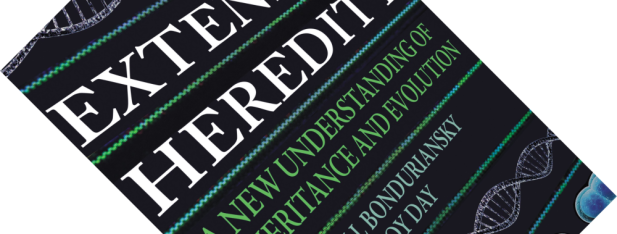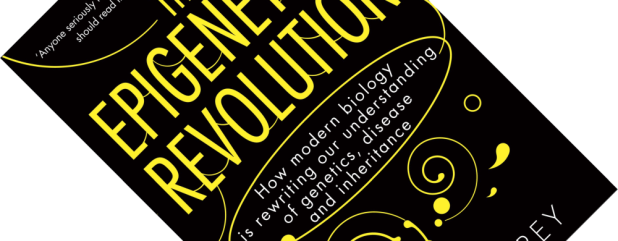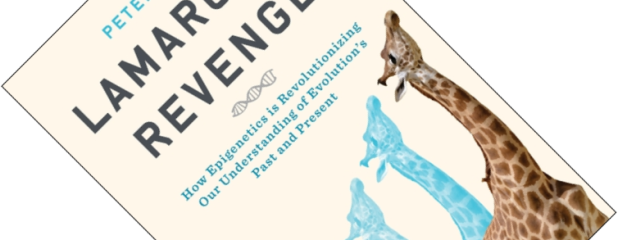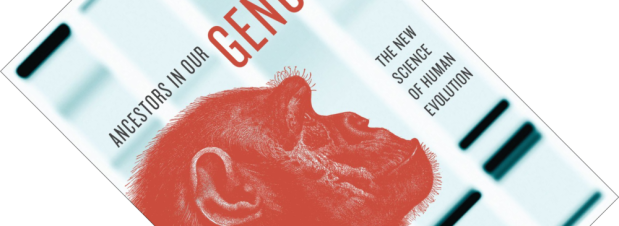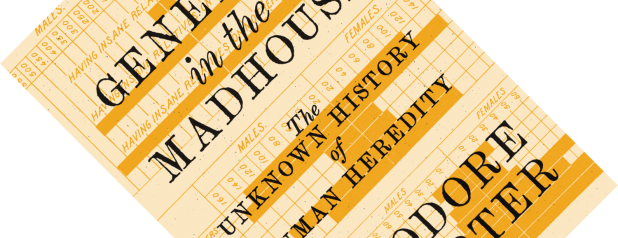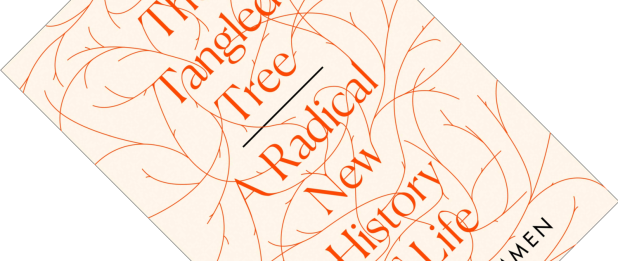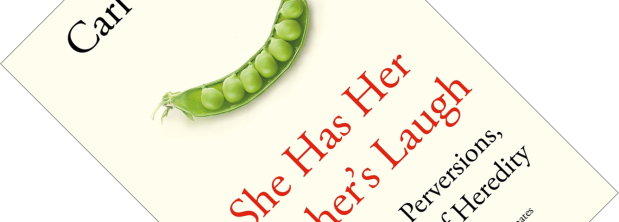In my recent review of She Has Her Mother’s Laugh: The Powers, Perversions, and Potential of Heredity, I mentioned how the concept of heredity has become ever fuzzier the more we have learnt about how traits can be passed to the next generation. We have come from a very gene-centric period in biology, but biologists Russell Bonduriansky and Troy Day are ready to shake up the field. Neither a Lamarckian redux nor an attempt to downplay the importance of genes, this book successfully argues that the time has come to take into account non-genetic forms of heredity. Along the way, they provide a very interesting history lesson on how we got here in the first place.
heredity
Book review – The Epigenetics Revolution: How Modern Biology is Rewriting Our Understanding of Genetics, Disease and Inheritance
After the recently published Lamarck’s Revenge: How Epigenetics Is Revolutionizing Our Understanding of Evolution’s Past and Present left me little the wiser on how epigenetics actually works, I decided to track down a copy of Nessa Carey’s The Epigenetics Revolution. As one of two popular books published around the same time, it seemed like a good place to start. Peter Ward was right about one thing, this is indeed a landmark book, even if it is now a few years old.
Book review – Lamarck’s Revenge: How Epigenetics Is Revolutionizing Our Understanding of Evolution’s Past and Present
As one of several intellectuals who wrote about evolution before Darwin, time has not been kind to the French naturalist Jean-Baptiste Lamarck (1744-1829). Reviled during his lifetime by the influential Cuvier, after his death he became best remembered, and ultimately ridiculed, for the idea that characters acquired during an organism’s lifetime are passed on to its offspring. With the rise of the modern field of epigenetics, some of his ideas are making a comeback, albeit modified and adapted for the 21st Century. Palaeontologist and astrobiologist Peter Ward would even like to go so far as to restore some honour to his name and consider epigenetics a neo-Lamarckian process.
Book review – Ancestors in Our Genome: The New Science of Human Evolution
After I read and reviewed Who We Are and How We Got Here: Ancient DNA and the New Science of the Human Past, I thought I knew about the changes to the story of human evolution based on studies of DNA. And given that Ancestors in Our Genome was published a few years before that book, I was curious what it could add to what I had been reading so far. As it turns out, a lot. As with my previous review, I should preface this one with the same warning that things are about to get complicated…
Book review – Blueprint: How DNA Makes Us Who We Are
When I opened this book and read its sales pitch (I paraphrase: “What if I told you of a new fortune-telling device that can predict psychological traits – it’s called the DNA revolution!”) I raised my inquisitive but sceptical eyebrow somewhat. Did I just pick up another piece of pop-psychology pulp? Oh boy, was I wrong! Behavioural geneticist Robert Plomin has written an incredibly interesting book with Blueprint, explaining how rapid advances in DNA sequencing technology are opening vast new vistas on the genetics underlying psychology. And is it ever so different, and more complex, than what hyped-up newspaper headlines have tried to sell us so far.
Book review – How Scientific Progress Occurs: Incrementalism and the Life Sciences
This review is part of a double bill. Cold Spring Harbor Laboratory Press recently published How Scientific Progress Occurs: Incrementalism and the Life Sciences. In it, Elof Axel Carlson explores the relevance to biology of the ideas Thomas S. Kuhn formulated in his book The Structure of Scientific Revolutions. Having read both books back-to-back, this review follows on the one of Kuhn’s book.
Book review – Genetics in the Madhouse: The Unknown History of Human Heredity
Ask most biologists about the history of genetics and they will likely mention Watson and Crick’s 1953 discovery of the double helix structure of DNA or the work of the monk Gregor Mendel that showed a simple form of trait inheritance. Professor of History Theodore M. Porter contends that there is another, largely forgotten side to this story. Long before words such as genetics and genes had been coined, the fledgeling discipline of psychiatry was recording details of patients in mental asylums, collecting vast amounts of data on human heredity. Genetics in the Madhouse is a deep dive into the archives to reveal this little-known history.
Book review – The Tangled Tree: A Radical New History of Life
After I recently finished Carl Zimmer’s new book She Has Her Mother’s Laugh: The Powers, Perversions, and Potential of Heredity, I noticed there was one mechanism of heredity he mentioned only ever so briefly: horizontal gene transfer. Since it does not play a large role in humans, it is understandable he left it aside. And doing it justice would have required almost another book. Luckily, science writer David Quammen is here to give us that book.
Book review – She Has Her Mother’s Laugh: The Powers, Perversions, and Potential of Heredity
If Charles Darwin were to walk into my office today and ask me: “So, what did I miss?” I think I would sit the good man down with a copy of She Has Her Mother’s Laugh, telling him: “Here, this should get you up to speed”. Darwin struggled to explain how traits were being inherited from generation to generation. As New York Times columnist Carl Zimmer shows in this wide-ranging book, the story of heredity has turned out to be both diverse and wonderful, but has also been misappropriated to prop up some horrible ideologies.
Book review – Unnatural Selection
Six years ago (is it already that long?) Katrina van Grouw blew me away with her gorgeously illustrated book The Unfeathered Bird, which gave a unique insight into bird anatomy. Her new book, Unnatural Selection, again features her unique combination of accessibly written text and lavish illustrations. The book celebrates the 150th anniversary of Charles Darwin’s The Variation of Animals and Plants under Domestication. In this and in On the Origin of Species, Darwin frequently referred to the rapid changes that breeders could bring about in plants and animals to make evolution understandable. And yet, biologists and naturalists don’t generally hold breeders and their breeds in high regard. In that sense, Unnatural Selection also celebrates their work and knowledge.

